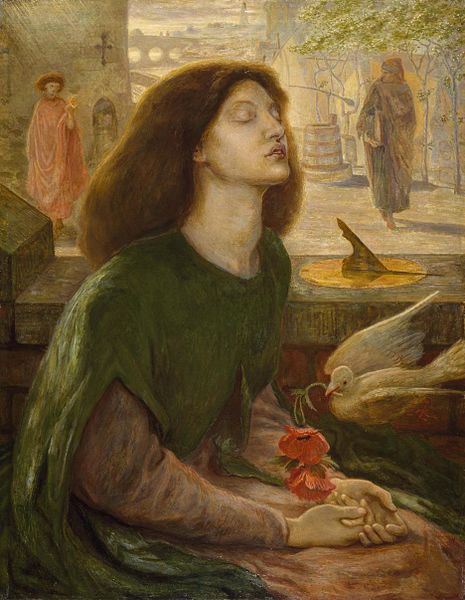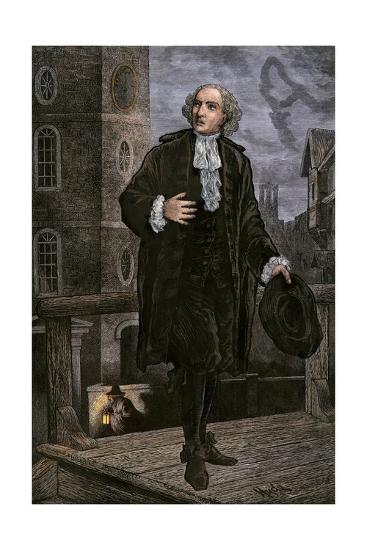Friday
My English professor son Tobias Wilson-Bates pointed out to me that there’s an element of Don Quixote in the response to Texas’s weather problems. As citizens watch the state’s power grid collapse in the face of arctic weather, their Republican governor, Fox News’s Tucker Carlson, and other GOP officials are blaming the whole problem on…windmills.
Apparently a New York Congresswoman and Joe Biden’s “Green New Deal” are also to blame. Pay no attention to Texas’ failure to weatherize, modernize, stockpile, and connect with other states’ energy systems.
Vox provides an account of Fox’s blame shifting:
Since Monday, various Fox News hosts, including Tucker Carlson and Harris Faulkner, have pushed the narrative that the power outages in Texas are actually the result of Green New Deal-style energy policies that aren’t even in place there.
“It seems pretty clear that a reckless reliance on windmills is the cause of this disaster,” Carlson claimed Monday, establishing a talking point that Fox News continued to hammer into the brains of viewers across numerous shows on Tuesday, with Carlson returning to the theme that evening.
Here, meanwhile, is Governor Greg Abbott in an interview with Fox’s Sean Hannity:
As Hannity agreed with him, Abbott said that “this shows how the Green New Deal would be a deadly deal for the United States of America.”
“Our wind and our solar got shut down, and they were collectively more than 10 percent of our power grid, and that thrust Texas into a situation where it was lacking power on a statewide basis,” he continued. “It just shows that fossil fuel is necessary for the state of Texas as well as other states to make sure that we’ll be able to heat our homes in the wintertime and cool our homes in the summertime.”
I do Don Quixote an injustice by comparing him to these alternative-fact yahoos, but the similarities are illuminating. Quixote is a nobleman whose mind has been turned by the many chivalric romances he’s been reading. Despairing about Spanish decline, he sallies forth on his horse, lance in hand and Sancho Panza at his side, to make Spain great again.
Windmills are a particular grievance:
At this point they came in sight of thirty or forty windmills that there are on that plain, and as soon as Don Quixote saw them he said to his squire, “Fortune is arranging matters for us better than we could have shaped our desires ourselves, for look there, friend Sancho Panza, where thirty or more monstrous giants present themselves, all of whom I mean to engage in battle and slay, and with whose spoils we shall begin to make our fortunes; for this is righteous warfare, and it is God’s good service to sweep so evil a breed from off the face of the earth.”
Windmills, as my former student Matt Sargent once informed me in his senior project on Quixote, represented a technological breakthrough in 17th century Spain, providing a source of power undreamt of by earlier generations. That windmills are once again cutting-edge technology is something few would have foreseen even 50 years ago. In any event, like Quixote with the chivalric code, Texas politicos dream of past glory, a time when fossil fuels were king. They will not acknowledge that oil and gas are a leading cause of extreme weather events such as the Texas snowstorm
When you live by such stories, sooner or later reality comes knocking, as it does with Quixote:
A slight breeze at this moment sprang up, and the great sails began to move, seeing which Don Quixote exclaimed, “Though ye flourish more arms than the giant Briareus, ye have to reckon with me.”
So saying, and commending himself with all his heart to his lady Dulcinea, imploring her to support him in such a peril, with lance in rest and covered by his buckler, he charged at Rocinante’s fullest gallop and fell upon the first mill that stood in front of him; but as he drove his lance-point into the sail the wind whirled it round with such force that it shivered the lance to pieces, sweeping with it horse and rider, who went rolling over on the plain, in a sorry condition. Sancho hastened to his assistance as fast as his ass could go, and when he came up found him unable to move, with such a shock had Rocinante fallen with him.
Even disaster doesn’t shake the faith of those who are completely lost in fantasy, however. When fact-based Sancho points out Quixote’s error, the knight has a theory worthy of a Q-Anon conspiracy:
“God bless me!” said Sancho, “did I not tell your worship to mind what you were about, for they were only windmills? and no one could have made any mistake about it but one who had something of the same kind in his head.”
“Hush, friend Sancho,” replied Don Quixote, “the fortunes of war more than any other are liable to frequent fluctuations; and moreover I think, and it is the truth, that that same sage Friston who carried off my study and books, has turned these giants into mills in order to rob me of the glory of vanquishing them, such is the enmity he bears me…
Ultimately, however, the Deep State will be defeated. Or as Quixote declares, “[I]n the end his wicked arts will avail but little against my good sword.”
Further thought: To quote from an earlier post where I compared the GOP to Quixote, I must also stress the difference. Quixote’s mission, as he puts it, is to “defend maidens, to protect widows and to succor the orphans and the needy.” In the other corner there’s the mayor of Colorado City, Texas. As CBS News recently reported,
A Texas mayor resigned after seemingly telling residents to fend for themselves in a Facebook post amid a deadly and record-breaking winter storm that left much of the state without power Tuesday.
As then-mayor of Colorado City, Tim Boyd wrote an insensitive message for people desperate for heat, water and power, saying “only the strong will survive and the weak will [perish.]”
“No one owes you [or] your family anything; nor is it the local government’s responsibility to support you during trying times like this!” he said. “Sink or swim it’s your choice! The City and County, along with power providers or any other service owes you NOTHING! I’m sick and tired of people looking for a damn handout.”
Many of us dream that the GOP will one day look back at its Trumpist fling and express the regrets the Quixote does at the end of his life:
My reason is now free and clear, rid of the dark shadows of ignorance that my unhappy constant study of those detestable books of chivalry cast over it. Now I see through their absurdities and deceptions, and it only grieves me that this destruction of my illusions has come so late that it leaves me no time to make some amends by reading other books that might be a light to my soul. Niece, I feel myself at the point of death, and I would fain meet it in such a way as to show that my life has not been so ill that I should leave behind me the name of a madman; for though I have been one, I would not that the fact should be made plainer at my death.










